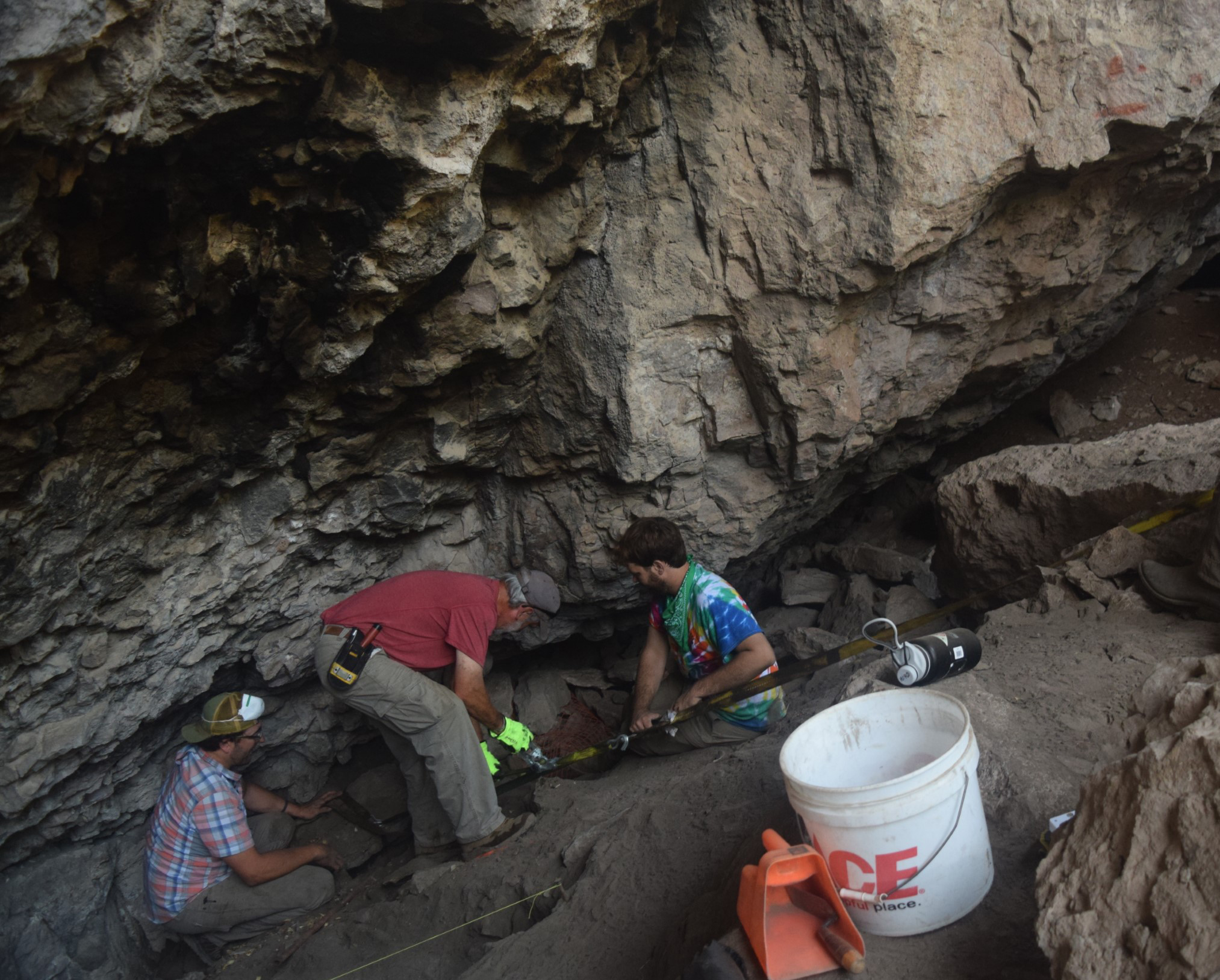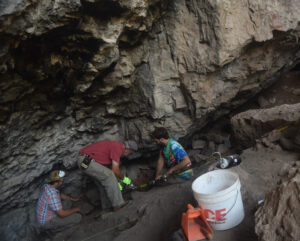
The Center for Big Bend Studies at Sul Ross State University will use a $1 million grant from the Department of Education to create a graduate degree in anthropology by 2025.
The majority of the funding will be used to hire three PhD level faculty for a three-year appointment, aiding in the expansion and development of anthropology courses and regional research programs, while the remainder will be used for equipment.
Several highly qualified candidates have already expressed interest in the positions.

From left: Dr. Bryon Schroeder, director of CBBS, volunteer Chris Hord and Dr. Mason Niquette, Cultural Resource Analysts, Inc. at the back of the San Esteban rockshelter, Presidio County, Texas. CBBS photo
“This area is a mostly unexplored goldmine of anthropological significance,” said Dr. Bryon Schroeder, the director of the center. “There’s no reason Sul Ross State cannot be a world class educational leader in the field, and that is the goal.”
CBBS is the premier anthropological research facility in the Big Bend. With each dig and discovery, secrets of the diverse history of the region are revealed, displaying its role in the cultural development of human societies across the entire Southwest.
As a relatively untouched living laboratory, the Chihuahuan Desert is an unrivaled spot in which to launch new efforts to learn about the history of our world. Several artifacts found in the Chihuahuan Desert have now made their way to the Smithsonian Institute.
The grant, secured through the office of U.S. Rep. Tony Gonzales, Texas Congressional District 23, has three objectives: Increase the depth and breadth of expertise and experience available through CBBS; expand the research and experiential teaching capabilities of CBBS; and to contribute to the pipeline of experts in the field.
While the grant expires in 2025, CBBS staff will continue effort to ensure the long-term viability and sustainability of the center, with the full support of the SRSU administration.
“The Center for Big Bend Studies has an exciting future at Sul Ross State,” said Dr. Carlos Hernandez, president. “Dr. Schroeder is working hard to attract top tier faculty and staff to give our students the experience they need to make a career out of their studies, though we can’t imagine they’d ever want to leave such a rich anthropological environment. If we do this right, we’ll have a pipeline of students who become faculty and researchers and Lobos for life.”
Several collaborations, including one with the University of Kansas Odyssey program, amongst the largest endowments in the U.S. devoted to archaeological research, have yielded worldwide recognition and peer-reviewed research and publications. CBBS and KU have just entered the fifth year of their partnership.
Established by Sul Ross State University in 1987, the Center for Big Bend Studies promotes archaeological and historical research in the Greater Big Bend region of Texas and northern Mexico, providing educational opportunities to university students, the public and outside researchers.
For more information, visit https://cbbs.sulross.edu or email cbbs@sulross.edu to learn more.
